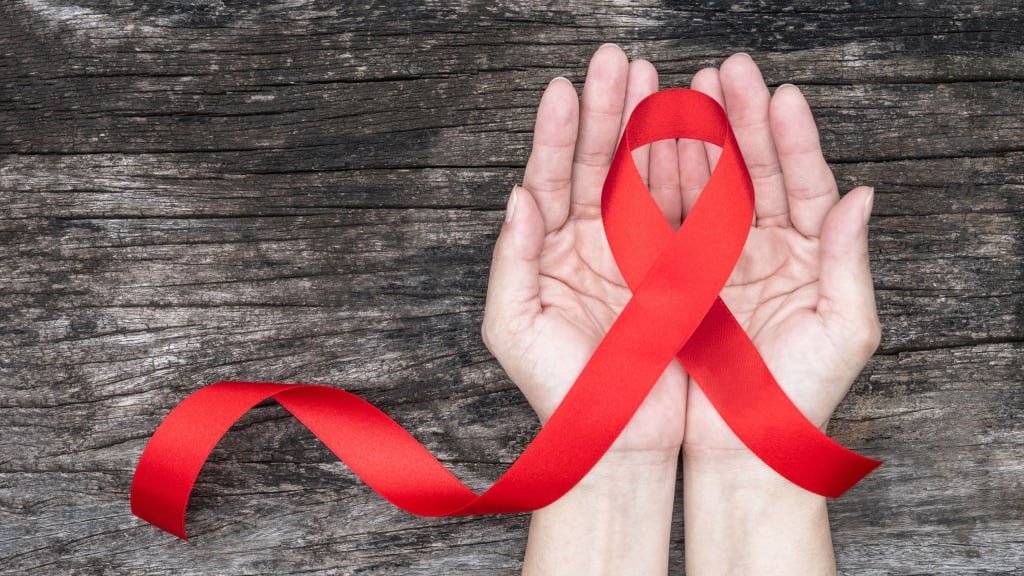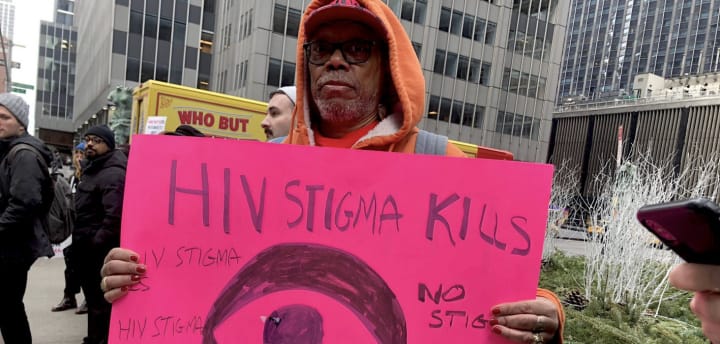
Since 1988 December has been made HIV/AIDS awareness month. This silent pandemic has infected 39 million people and has killed over 680,000 of them since its discovery in 1981. HIV/AIDS is a disease that attacks the immune system, weakening the body’s defenses to fight against infection and diseases. It is spread through contact with infected blood, semen, and vaginal fluid. Despite the global awareness of the disease, it still infects less than 2,000 people a year. Here is how you can go through life with HIV/AIDS.
Treating HIV/AIDS

Despite modern medicine’s best efforts, there is still no cure for HIV/AIDS, but that doesn’t mean their situation is hopeless. As soon as you get diagnosed with it, you’ll want to start treatment called Antiretrovirals, or ART, right away. Taking this will reduce the number of HIV/AIDS cells, or viral count, in the bloodstream. Most people who agree to accept treatment can get their viral count to a manageable level within six months of starting it. Unfortunately, this doesn’t prevent you from spreading the disease to others.
Telling Others

In some states, you are legally required to tell your HIV/AIDS status to sexual and injection partners. You still should even if the law says you don’t have to. It’s a respectful thing to do. This conversation may be hard, but it needs to happen for everyone’s safety. The Health Department can provide free/low-cost testing and counseling for anyone who thinks or is infected with the disease. Your family and friends can provide you with much-needed emotional and physical needs. You do not need to inform your employer unless your condition can affect your job, but they still need to keep it confidential.
Protecting Others

There are many ways to protect your loved ones from HIV/AIDS exposure. Encourage those at high risk of infection to take Pre-Exposure Prophylaxis or PrEP. This is a highly effective medication for preventing those exposed to HIV/AIDS from developing it. It’s not a 100% guarantee, though. Use condoms the right way every time. You can’t transmit HIV through sexual activities that don’t involve contact with bodily fluids. Kissing someone with HIV/AIDS won’t infect you unless there is blood mixed with your saliva. Never share needles, syringes, or other intravenous drug equipment. If you have a drug problem, seek counseling.
Supporting A Healthy Lifestyle

Other than keeping your viral count at a manageable level, there are other things you can do to live your best life. Avoid eating foods that can affect your HIV/AIDS treatment, like raw meat and fish. Your Healthcare Provider can provide you with medical specialists like a nutritionist who can help you with any issues you are having with your condition. People with HIV/AIDS can still participate in the same exercise programs they used to before contracting it. If you smoke or drink, you should consider quitting, as these can make your condition worse.
Fighting Social Stigma

When a lot of people hear about HIV/AIDS, they often create a negative picture of you before they even get to know you. Good mental health is essential for successful treatment. One of the most common mental health issues faced by those with HIV/AIDS is depression. Just know you are not alone in this fight. As I mentioned earlier, millions of people have HIV/AIDS. Join, or start, a support group in your area for those with HIV/AIDS. Hang around people who love and support you. Talking openly about HIV/AIDS will normalize it in public. Use your case to educate others about the dangers of drug addiction or unsafe sex.
To learn more about living with HIV/AIDS, visit https://www.cdc.gov/hiv/basics/livingwithhiv/index.html.
About the Creator
M.L. Lewis
Welcome to my little slice of pie. This blog will primarily focus on prepping and homesteading skills with a sprinkle of fiction every now and then.
Enjoyed the story? Support the Creator.
Subscribe for free to receive all their stories in your feed. You could also pledge your support or give them a one-off tip, letting them know you appreciate their work.






Comments (1)
I'm so glad you spoke about this. There's just so much stigma around this and like you said, people would always have a negative impression.